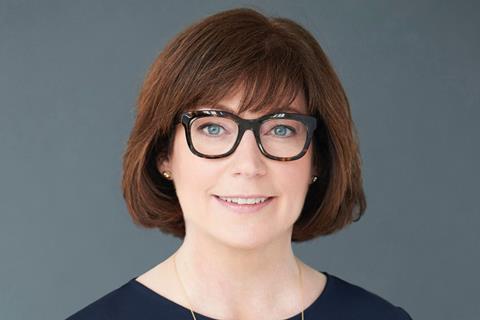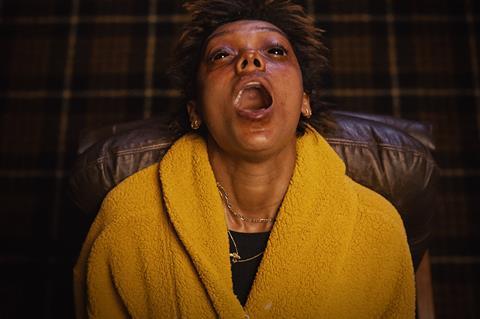
Ushering in more international collaborations is a priority for Screen Australia, says chief executive Deirdre Brennan, who is now nearly 10 months into one of the biggest jobs in Australia’s audiovisual industry.
“There were only six final co-production certificates granted last year (23/24 financial year),” Brennan says. “Australia has a huge reputation for being highly creative and collaborative. Co-production has got to be a focus. There’s so much opportunity for creative and cultural exchange, and partnerships around the world.”
Australia and India recently signed an official co-production treaty, and Brennan says there is increasing interest from the prolific co-producing markets of Ireland, Canada and France, which already have treaties with Australia.
Brennan took over from Graeme Mason on a five-year contract. She joined after four years at WildBrain in Canada.
With a priority to make the government agency “future-focused,” she quickly launched a quiet review of its operations as well as a research project to better understand Australian audiences. She describes the latter as “the missing piece”.
“We can’t plan without understanding the population we service,” she says.
Screen Australia spent approximately A$85m of its annual budget of A$100m in 2023/24 on supporting industry, including content development and production, across 57 different programmes and initiatives. Brennan believes this is too many.
“It’s important to stop and ask, ‘What’s needed? Where can we make the most impact? What role do we play?’,” she says. “Purpose is a big focus and we are bringing a lot more analysis into what we’re doing.”
Brennan revealed some A$17m was invested in the production of 19 narrative/scripted features in 2023/24 – the cap on individual films is A$2m – and the numbers are similar for high-end drama on television, that is A$19m on 18 dramas. A further A$4.8m went to 24 feature documentaries.
Screen Australia was able to spend more than expected last financial year because of how much it received back from investments in projects, especially Danny and Michael Philippou’s low-budget horror film Talk To Me, which has grossed US$93m globally.
Brennan believes features are undervalued by the Australian industry.

“[Features] are probably one of the greatest strengths of our creative industries, but we don’t realise it,” she suggests. “Features are also a huge opportunity for people who are never going to get an eight-part series commissioned. They are our playground to develop talent. Talent is the IP in features. The respect and interest in Australian talent during my first Cannes experience [in May 2024] was eye-opening.”
Brennan is keen for Screen Australia to have close ties and good communication with the industry. “I’m not sure it’s understood that we can only support 30% [696 in 23/34] of the applications received [2,311], and 40% of the total ask [A$210m],” she points out.
Screen Australia invests in approximately 41% of the applications it received for feature production and 36% of the development applications, including First Nations and documentary projects.
“There’s so much focus [from industry] on Screen Australia’s direct funding,” she says. “Sometimes we forget the incredible foundation we have to build on. The producer offset (PO) has an incredibly important role and [we need] more understanding of how it’s being shaped. The same with co-productions.”
The PO, a non-discretionary tax rebate, is set at 40% of eligible spend on films with local distribution deals, and 30% for television. Producers must have a final certificate to make a claim.
According to Screen Australia, 205 projects with budgets totalling A$1.4bn, were granted a certificate in 2023/24. The claimable amount was A$413m. About a third (67) were feature-length with a claimable amount of A$187.25m.
Screen Australia’s contribution and the PO cannot exceed 65% of an individual film budget. They together contributed 36% to the cost of the slate in 22/23.
Several producers have used the Administrative Appeals Tribunal to officially challenge the agency’s administration of the PO – it grants the certificates – but Brennan would not comment on the cases.
“But I will say that, since 2017, 99.7% of provisional certificates ended up being final certificates and that gives me comfort that the process is working.”















![[L-R]: Amanda Villavieja, Laia Casanovas, Yasmina Praderas](https://d1nslcd7m2225b.cloudfront.net/Pictures/274x183/6/4/1/1471641_pxl_20251224_103354743_618426_crop.jpg)



![Kindred Spirits [4] Horizontal Image[9]](https://d1nslcd7m2225b.cloudfront.net/Pictures/100x67/6/9/4/1473694_kindredspirits4horizontalimage9_45584.jpg)





No comments yet